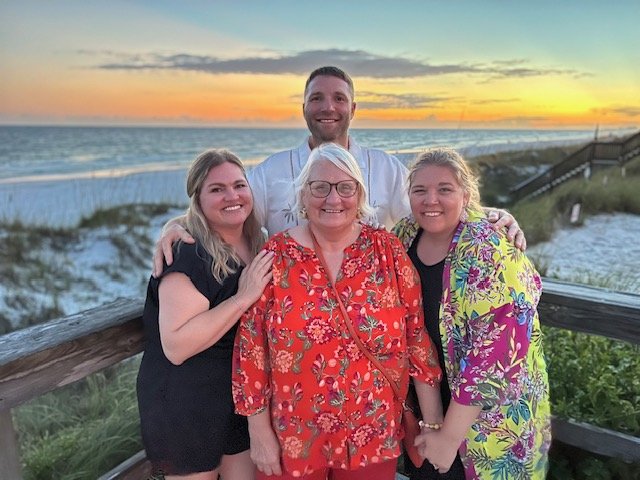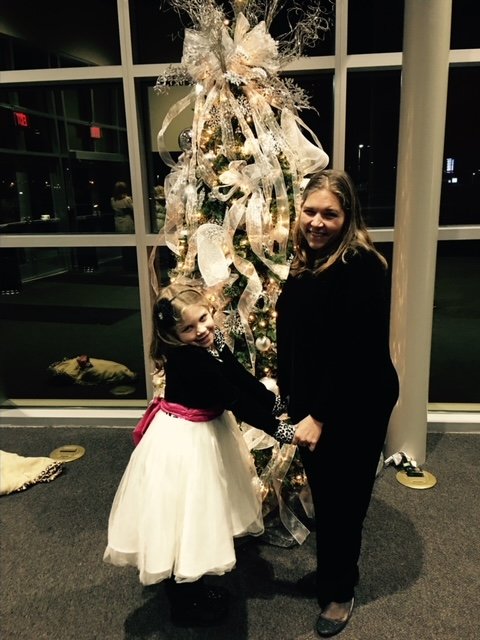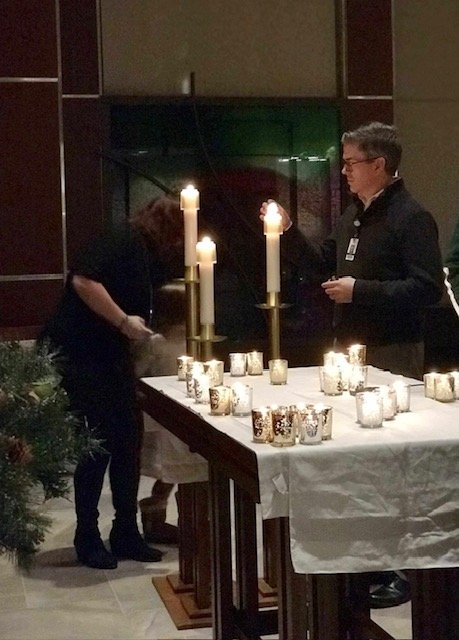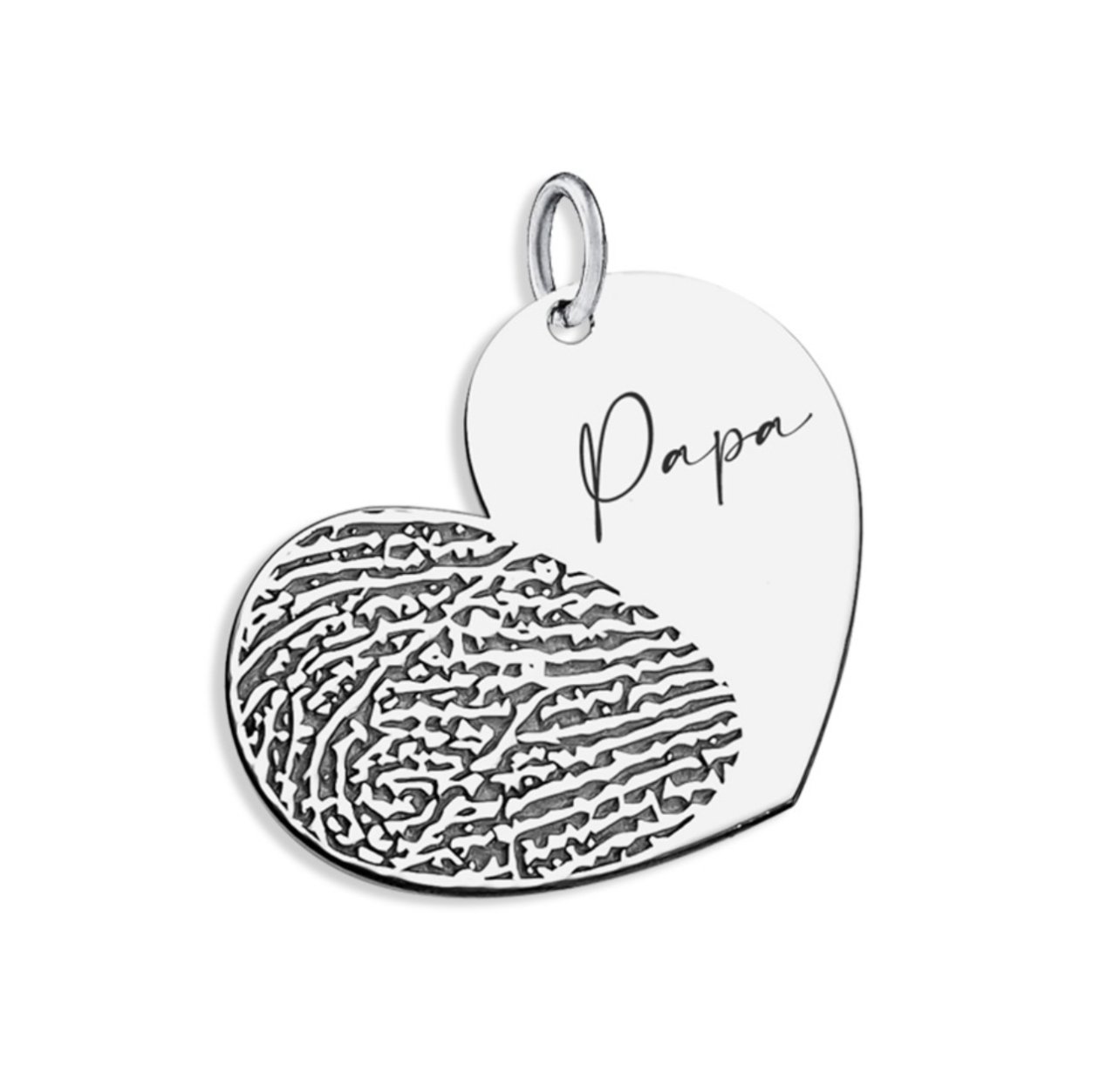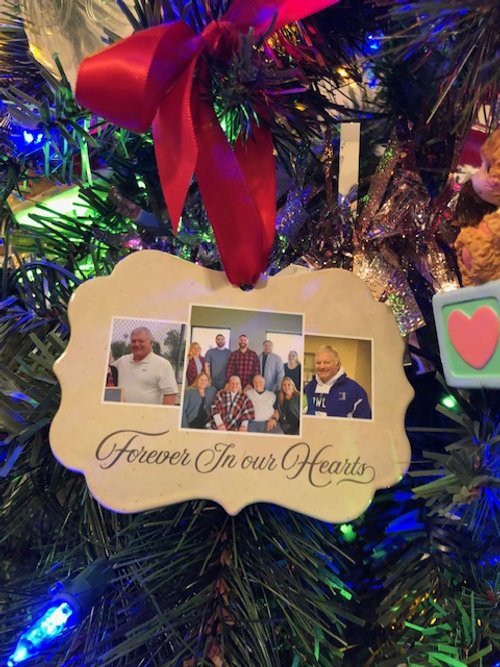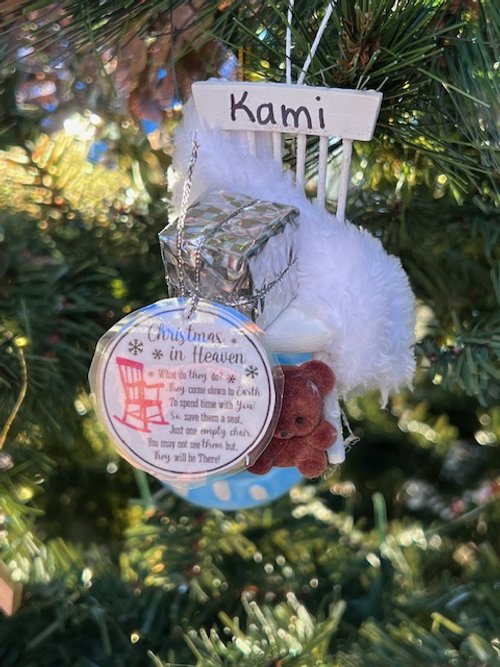Grief Blog









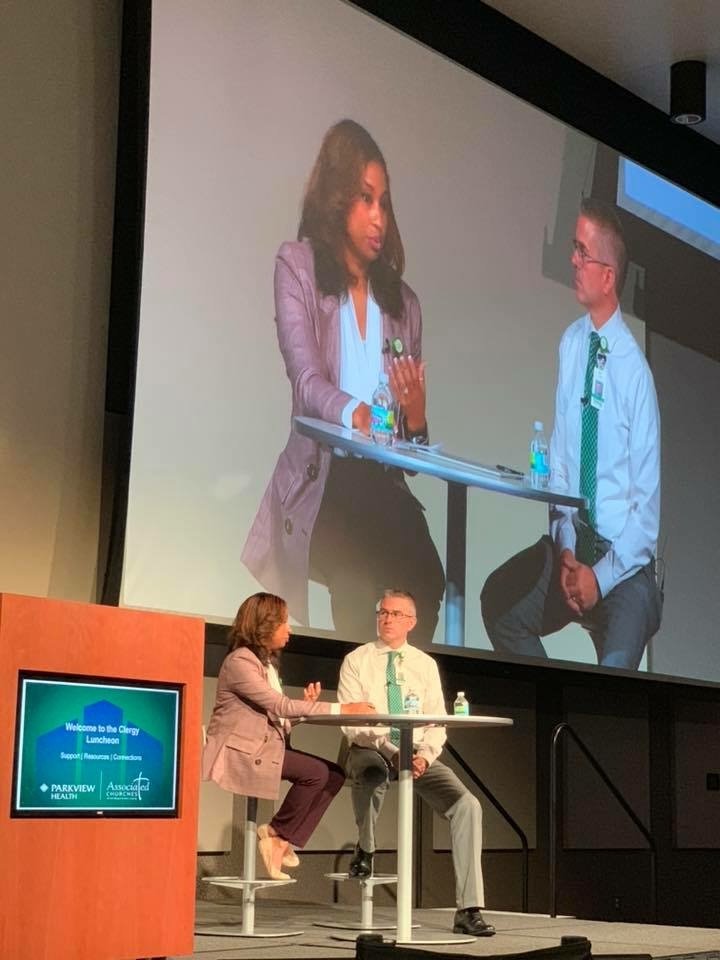





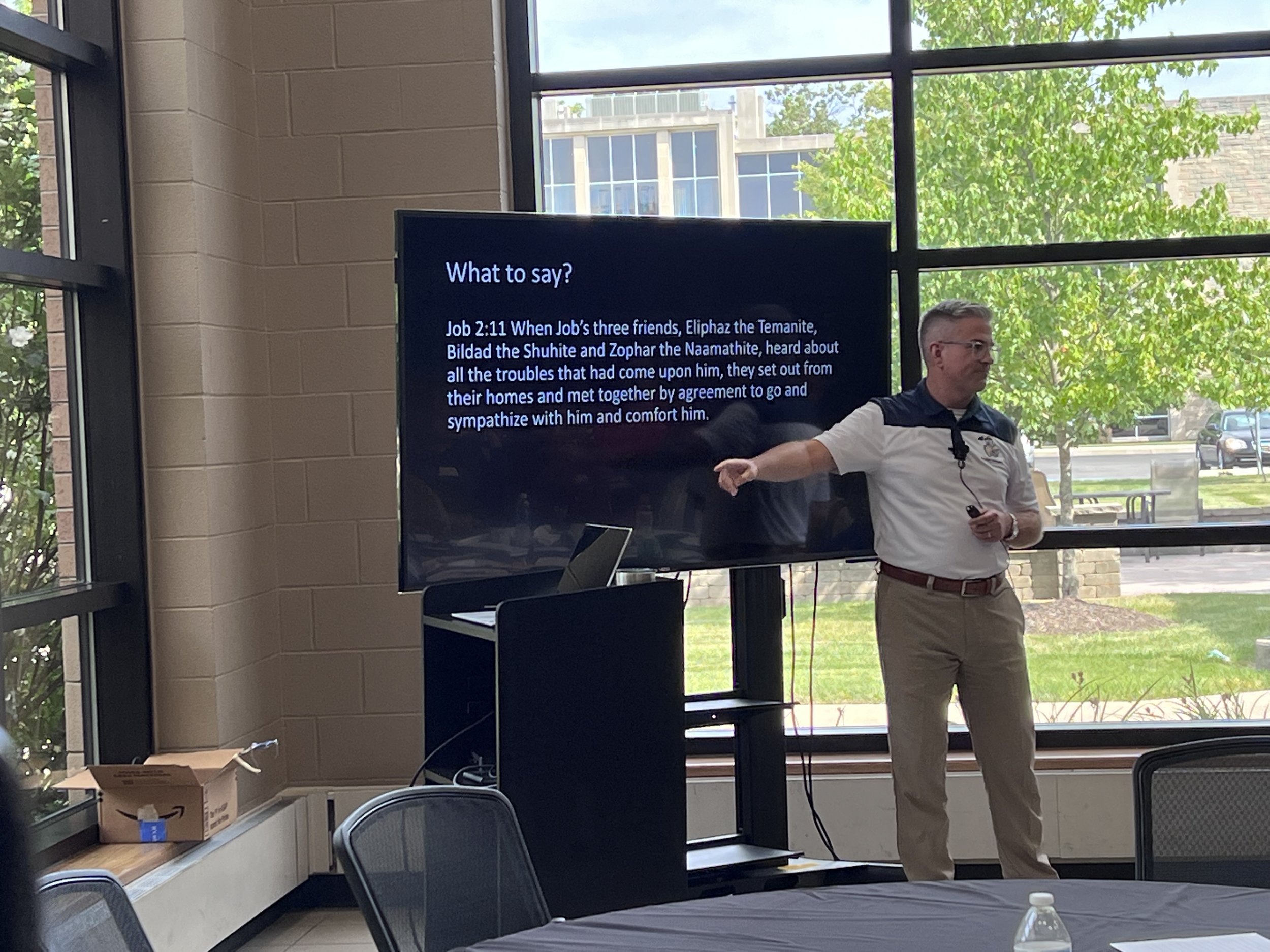




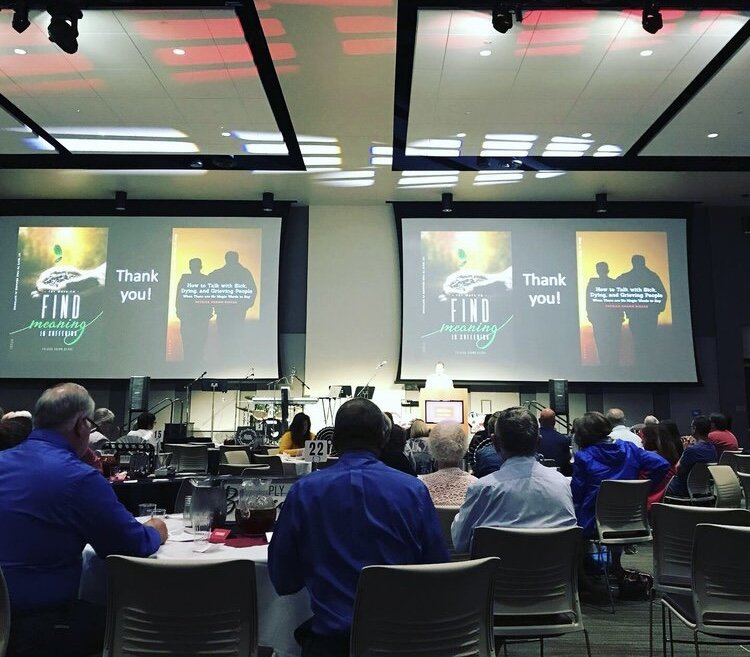







The Power of Silence in Comforting Others
Learn how to use the power of silence to comfort others by being present and supportive without words.
Silence can be a powerful tool in comforting others, especially during times of illness, grief, or crisis. Sometimes, the best way to provide support is to simply be present and offer a silent, compassionate presence.
When someone is going through a difficult time, words can often feel inadequate. In these moments, silence can speak volumes. By sitting quietly with the person, holding their hand, or offering a comforting touch, you show that you are there for them and that they are not alone.
Silence allows the person to express their emotions without feeling rushed or judged. It provides a safe space for them to cry, reflect, or simply be. By being present in silence, you show that you are willing to share in their pain and provide a supportive presence.
Listening is an important part of using silence to comfort others. Allow the person to speak if they wish, but don't feel pressured to fill the silence with words. Sometimes, just being there and listening is enough. Your silent presence can offer a sense of stability and comfort during a chaotic and challenging time.
Silence can also help you connect with your own emotions and provide a more genuine and empathetic presence. By embracing the silence, you can become more attuned to the needs of the person you are comforting and respond in a more meaningful way.
It's important to remember that silence is not about doing nothing. It's about being fully present and offering your support in a non-verbal way. It requires patience, empathy, and a willingness to be there for the person, even when you don't have the right words to say.
Respect the person's need for space and privacy. Sometimes, they may need time alone to process their emotions. Let them know that you are there for them and available whenever they need you.
Remember, the power of silence lies in its ability to create a sense of connection and support without words. By being present and offering a silent, compassionate presence, you can provide significant comfort to those who are going through difficult times. Embrace the power of silence and trust that your presence can make a meaningful difference.
How to Talk to Children About Illness and Death
Discover how to talk to children about illness and death with honesty, empathy, and age-appropriate language.
Talking to children about illness and death can be difficult, but it’s important to approach these conversations with honesty, empathy, and age-appropriate language.
First, be honest with children about the situation. Use clear and simple language to explain what is happening. Avoid using euphemisms or vague terms, as these can confuse children and make it harder for them to understand. For example, instead of saying that someone "went to sleep," explain that the person has died and is not coming back.
It's important to listen to children's questions and concerns. Allow them to express their feelings and provide honest answers to their questions. If you don't know the answer, it's okay to say so. Reassure them that their feelings are normal and that it's okay to be sad, angry, or confused.
Empathy is key when talking to children about illness and death. Validate their emotions and let them know that it's okay to feel upset. Share your own feelings to help them understand that they are not alone in their grief. This can create a sense of connection and support during a difficult time.
Use age-appropriate language and explanations. Younger children may need simple and concrete explanations, while older children can handle more complex information. Tailor your approach to the child's age and developmental level to ensure they understand what is happening.
Provide comfort and reassurance. Let children know that they are loved and supported. Offer physical comfort, such as hugs and cuddles, and spend time together doing activities that they enjoy. This can help them feel safe and secure during a challenging time.
Encourage children to express their feelings through creative activities, such as drawing, writing, or playing. This can provide an outlet for their emotions and help them process their grief in a healthy way.
Remember, talking to children about illness and death is a process, not a one-time conversation. Be available to continue the conversation as needed and provide ongoing support. By approaching these conversations with honesty, empathy, and age-appropriate language, you can help children navigate their feelings and understand difficult situations.
Lessons from the Book of Job: Comforting Those in Crisis
Discover how the Book of Job offers timeless lessons on comforting and supporting those in crisis.
The Book of Job offers timeless lessons on how to comfort and support those in crisis. Job's story is one of immense suffering and profound faith, and it provides valuable insights into how we can be there for others during their most challenging times.
The Story of Job
Job was a man who faced unimaginable suffering. He lost his wealth, his health, and his family in a series of devastating events. Despite his suffering, Job's faith remained steadfast, and his story has inspired countless individuals facing their own trials.
The Role of Job's Friends
Job's friends, Eliphaz, Bildad, and Zophar, play a significant role in his story. While they ultimately fail to comfort him adequately, their initial actions offer important lessons.
Lesson 1: Show Up
When Job's friends heard about his troubles, they immediately went to be with him. This simple act of showing up is often the most important step you can take. Being present with someone in their time of need demonstrates your support and care.
Lesson 2: Be Silent
Upon arriving, Job's friends sat with him in silence for seven days and seven nights. They recognized that there were no words to ease Job's pain. Sometimes, silence is the best way to provide comfort. It shows that you are there and willing to share in their suffering without trying to fix it.
Lesson 3: Empathize and Weep
Job's friends wept aloud and tore their robes as a sign of empathy. They physically expressed their sorrow and solidarity with Job. Showing genuine emotion and empathy can help those in crisis feel understood and less alone in their pain.
What Job's Friends Did Wrong
Despite their good intentions, Job's friends made critical mistakes. They attempted to explain Job's suffering and offered unsolicited advice, which only added to his distress. This teaches us what not to do when comforting someone in crisis.
Lesson 4: Avoid Giving Unsolicited Advice
Instead of offering explanations or advice, focus on listening and providing a compassionate presence. Unsolicited advice can feel dismissive and may not address the person's emotional needs.
Lesson 5: Validate Their Experience
Acknowledge the person's pain and validate their feelings. Statements like "I can't imagine how hard this must be for you" or "I'm here for you" can be more comforting than trying to offer solutions.
Lesson 6: Be Patient
Supporting someone in crisis requires patience. They may need time to process their emotions and may not be ready to talk right away. Give them space and let them know you are there whenever they need you.
Conclusion
The Book of Job provides profound lessons on how to comfort those in crisis. By showing up, being silent, empathizing, and avoiding unsolicited advice, we can offer meaningful support. Remember, the most important thing you can do is to be present and show that you care. Your compassionate presence can make a significant difference in the lives of those who are suffering.
Common Mistakes to Avoid When Supporting the Sick and Dying
Discover common mistakes to avoid when supporting sick and dying individuals to ensure you provide the best care and comfort.
Supporting someone who is sick or dying is challenging, and it’s easy to make mistakes even with the best intentions. Here are some common mistakes to avoid to ensure you provide the best care and comfort.
1. Avoiding the Person
One of the biggest mistakes is avoiding the person because you don't know what to say or do. Avoidance can make the person feel isolated and unsupported. Instead, show up and be present. Your presence is often more important than finding the perfect words.
2. Offering Unsolicited Advice
When someone is sick or dying, they are often overwhelmed with medical information and decisions. Offering unsolicited advice about treatments or remedies can add to their stress. Unless you are asked for your opinion, focus on providing emotional support rather than medical advice.
3. Using Clichés and Platitudes
Phrases like "Everything happens for a reason" or "They're in a better place" can feel dismissive to someone who is suffering. These clichés often fail to address the person's pain and can make them feel misunderstood. Instead, offer genuine expressions of empathy and support, such as "I'm here for you" or "I'm sorry you're going through this."
4. Trying to Fix Their Feelings
It's natural to want to make things better, but trying to fix the person's feelings can be unhelpful. Avoid saying things like "Don't be sad" or "You need to stay positive." Instead, acknowledge their emotions and let them know it's okay to feel whatever they are feeling.
5. Ignoring the Spiritual Aspect
For many people, spiritual support is crucial during times of illness and dying. Ignoring this aspect can leave them feeling spiritually neglected. Offer to pray with them, read from their sacred texts, or simply listen to their spiritual concerns. Respect their beliefs and be open to discussing their faith.
6. Being Inconsistent
Consistency is key in providing support. Frequent visits or regular check-ins can help the person feel cared for and remembered. Inconsistent support can make them feel abandoned during their time of need.
7. Not Taking Care of Yourself
Supporting someone who is sick or dying can be emotionally draining. Neglecting your own well-being can lead to burnout and make it harder to provide effective support. Ensure you are also taking time to rest, seek support, and care for your own emotional health.
8. Overstaying Your Visit
While it's important to be present, overstaying your visit can tire the person out. Be mindful of their energy levels and cues. Sometimes a short, heartfelt visit can be more beneficial than staying too long.
9. Ignoring Non-Verbal Cues
Pay attention to the person's non-verbal cues, such as body language and facial expressions. These can provide important insights into how they are feeling and what they need. Respond to these cues with empathy and respect.
10. Failing to Follow Up
After your visit or conversation, make sure to follow up with the person. A phone call, text, or another visit can show that you continue to care about their well-being. Consistent follow-up helps reinforce your support.
By avoiding these common mistakes, you can provide more effective and compassionate support to those who are sick or dying. Remember, the most important thing is to be present, listen, and offer genuine empathy. Your support can make a meaningful difference during their difficult journey.
Understanding the Phases of Spiritual Growth
Learn about the three phases of spiritual growth and how they relate to dealing with pain and suffering.
Pain and suffering are inevitable parts of life, but they can also lead to significant spiritual growth. Many people go through three phases of spiritual growth during difficult times.
In Phase One, individuals often feel that God loves them and has a wonderful plan for their lives. This phase is characterized by a sense of happiness and elation, often experienced at the beginning of one's spiritual journey. It's a time of feeling connected and hopeful about the future.
Phase Two begins when individuals face hardships. During this phase, they rely on God's help to overcome their difficulties. The theme of Phase Two is trusting that God will help them through their struggles. It's a time of learning to lean on faith and find strength in spirituality.
Phase Three is the most challenging. In this phase, individuals realize that they may not overcome their difficulties in the way they hoped. Instead, they learn to find meaning in their suffering and grow spiritually through their pain. This phase involves a deeper understanding of faith and a more profound sense of acceptance.
Understanding these phases can help individuals navigate their spiritual growth during difficult times. Embracing each phase and the lessons it brings can lead to a deeper and more meaningful spiritual life. By recognizing and accepting the challenges, we can find strength and grow in our faith, even in the face of suffering.
These phases are not always linear, and individuals may move back and forth between them. The key is to remain open to the lessons each phase offers and to seek growth and understanding through the experiences.
Remember, spiritual growth is a journey, and each phase brings its own unique challenges and rewards. Embrace the process and trust that your faith will guide you through even the most difficult times.
Effective Communication with Grieving Families
Discover effective ways to communicate with grieving families through presence, listening, and empathy.
Communicating with grieving families can be challenging, but your presence and empathy can provide significant support. Here are some effective ways to communicate with grieving families.
First, offer your presence. Sit with the family, hold their hands, and let them know you are there for them. Sometimes, the best thing you can do is simply be there, without saying anything. This silent companionship can be incredibly comforting for families going through a difficult time.
Listening is also crucial. Allow the family members to talk about their feelings and memories. Acknowledge their pain and validate their emotions. Avoid trying to fix their feelings or offering clichés. Instead, be a compassionate listener. By listening attentively, you show that you value their experience and are there to support them in their grief.
Empathy is key in these situations. Try to understand what the family is going through and reflect on their emotions. Validate their experiences and avoid saying things like "I know how you feel," as this can be dismissive. Instead, offer genuine expressions of support and understanding. Simple statements like "I'm here for you" or "I'm sorry for your loss" can be much more comforting than trying to offer solutions or explanations.
Offer practical support. Grieving families often need help with everyday tasks. Offer to bring meals, help with household chores, or run errands. These small acts of kindness can make a big difference and show that you care.
Respect their need for space and privacy. Sometimes, grieving families may need time alone to process their emotions. Respect their wishes and let them know you are available whenever they need you.
Remember, your presence, listening, and empathy can provide significant comfort to grieving families. By being there for them, you offer a supportive and compassionate presence that can help them navigate their difficult journey.
How to Visit Someone in the Hospital
Discover tips for making your hospital visits more effective and comforting for patients, focusing on presence and empathy.
Visiting someone in the hospital can be daunting, but your presence can provide significant comfort. Here are some valuable tips to make your visits more effective.
First, call ahead to get the patient's room number and any visiting guidelines. This helps you navigate the hospital more easily and respect the patient's time and privacy. Knowing the details beforehand can make your visit smoother and more focused on supporting the patient.
When you arrive, sanitize your hands before entering the room. This simple act shows respect for the patient's health and well-being. It demonstrates that you care about their safety and are taking steps to protect them from potential infections.
Ask for permission to sit and choose a chair that allows easy eye contact without making the patient strain. Sitting down shows that you are fully present and there to listen. This gesture can make the patient feel more comfortable and valued during your visit.
Listening is crucial during hospital visits. Allow the patient to guide the conversation. They may want to talk about their condition, or they might prefer to discuss something entirely different to take their mind off their worries. By following their lead, you show respect for their needs and feelings.
Keep your visit short unless the patient wants to talk longer. They might be tired or in pain, and a brief, supportive visit is often more helpful than staying too long. Respecting their need for rest is another way to show that you care. Offer to help with small tasks, like getting a glass of water or adjusting their pillows, to make them more comfortable.
Remember, your presence and willingness to listen are the greatest gifts you can offer during a hospital visit. By being there, you provide comfort and support that is truly meaningful.
Navigating Spiritual Growth Through Pain
Learn how pain and suffering can lead to spiritual growth, using insights from the phases of spiritual growth.
Pain and suffering are inevitable parts of life, but they can also lead to significant spiritual growth. In my experience, many people go through three phases of spiritual growth during difficult times.
In Phase One, individuals often feel that God loves them and has a wonderful plan for their lives. This phase is characterized by a sense of happiness and elation, often experienced at the beginning of one's spiritual journey. It's a time of feeling connected and hopeful about the future.
Phase Two begins when individuals face hardships. During this phase, they rely on God's help to overcome their difficulties. The theme of Phase Two is trusting that God will help them through their struggles. It's a time of learning to lean on faith and find strength in spirituality.
Phase Three is the most challenging. In this phase, individuals realize that they may not overcome their difficulties in the way they hoped. Instead, they learn to find meaning in their suffering and grow spiritually through their pain. This phase involves a deeper understanding of faith and a more profound sense of acceptance.
Understanding these phases can help individuals navigate their spiritual growth during difficult times. Embracing each phase and the lessons it brings can lead to a deeper and more meaningful spiritual life. By recognizing and accepting the challenges, we can find strength and grow in our faith, even in the face of suffering.
The Role of Faith Leaders in Times of Crisis
Understand the crucial role of faith leaders in supporting individuals during times of crisis through presence and empathy.
Faith leaders play a crucial role in supporting individuals during times of crisis. It's essential to be present and show empathy during these challenging times.
As a faith leader, your presence can provide significant comfort. Show up and be there for those in crisis. Sit with them, hold their hand, and let them know you care. Sometimes, your presence alone can be more comforting than any words you could say. The act of simply being there can offer a sense of stability and support to those who are struggling.
Listening is also vital. Allow the person to share their thoughts and feelings without interruption. Acknowledge their pain and fears. You don't need to have all the answers. Often, just being a compassionate listener is enough. By actively listening, you demonstrate that you respect their experience and are genuinely interested in supporting them. This can help the person feel heard and understood, which is incredibly valuable during such difficult times.
Empathy is key. Try to understand what the person is going through. Reflect on their emotions and validate their experiences. Avoid clichés and platitudes, as these can feel dismissive. Instead, offer genuine expressions of support and understanding. Phrases like "I'm here for you" or "I can't imagine how hard this is, but I'm here to support you" can be more comforting than you might realize.
Remember, as a faith leader, your presence and empathy can provide significant comfort to those in crisis. By being there, listening, and showing empathy, you can offer meaningful support and help individuals navigate their difficult times.
How to Comfort the Grieving
Learn how to effectively comfort grieving individuals through presence, listening, and empathy.
Comforting someone who is grieving can be challenging, but your presence and empathy can provide significant support. Being there and showing that you care can make a big difference.
When someone is grieving, offer your presence. Sit with them, hold their hand, and let them know you are there for them. Sometimes, the best thing you can do is simply be there, without saying anything. This silent companionship can be incredibly comforting for someone going through a difficult time.
Listening is also crucial. Allow the grieving person to talk about their feelings and memories. Acknowledge their pain and validate their emotions. Avoid trying to fix their feelings or offering clichés. Instead, be a compassionate listener. By listening attentively, you show that you value their experience and are there to support them in their grief.
Empathy is key in these situations. Try to understand what the person is going through and reflect on their emotions. Validate their experiences and avoid saying things like "I know how you feel," as this can be dismissive. Instead, offer genuine expressions of support and understanding. Simple statements like "I'm here for you" or "I'm sorry for your loss" can be much more comforting than trying to offer solutions or explanations.
Remember, your presence, listening, and empathy can provide significant comfort to someone who is grieving. By being there for them, you offer a supportive and compassionate presence that can help them navigate their difficult journey.
The Importance of Presence in Hospital Visits
Understand the importance of being present during hospital visits and how to offer meaningful support to patients.
Hospital visits can be intimidating, but your presence is incredibly valuable. Showing up and being there for someone is often the most important thing you can do.
When visiting a hospital, it’s essential to sit down and make eye contact with the patient. This small gesture can make a big difference, showing that you are fully there for them. Ask for permission to sit and choose a chair that allows easy eye contact without making the patient strain. Sitting down also shows that you are willing to take the time to be with them, which can be very reassuring.
Listening is another critical component. Hospitals can be noisy and chaotic, so offering a calm and attentive presence can be very comforting. Listen more than you speak, and allow the patient to guide the conversation. They may want to talk about their condition, or they might prefer to discuss something entirely different to take their mind off their worries. By following their lead, you show respect for their needs and feelings.
Sanitize your hands before and after your visit to show respect for the patient's health. This simple act demonstrates that you care about their well-being and are taking steps to protect them. Keep your visit short unless the patient wants to talk longer. They might be tired or in pain, and a brief, supportive visit is often more helpful than staying too long. Respecting their need for rest is another way to show that you care.
Remember, your presence and willingness to listen are the greatest gifts you can offer during a hospital visit. By being there, you provide comfort and support that is truly meaningful.
How to Approach Conversations with the Sick and Dying
Discover how to communicate effectively and compassionately with those who are sick and dying, using presence, listening, and empathy.
Communicating with someone who is sick or dying can be challenging. The key is to focus on being present, listening, and showing empathy. Sometimes, the best thing to do is to simply be there. Sit down, be quiet, and let the person express their feelings.
When you visit, don't worry about having the perfect words. Instead, offer your presence. Sometimes, just sitting with the person, holding their hand, or sharing a quiet moment can mean more than any words you could say. It's about showing that you care and that you're there for them. The simple act of being there can provide immense comfort and reassurance to someone who is suffering.
Listening is another crucial aspect. Allow the person to share their thoughts and feelings without interruption. Acknowledge their pain and fears. You don't need to have all the answers. Often, just being a compassionate listener is enough. By actively listening, you show that you respect their experience and are genuinely interested in what they have to say. This can help the person feel heard and understood, which is incredibly valuable during such difficult times.
Empathy is vital. Try to understand what the person is going through. Reflect on their emotions and validate their experiences. Avoid clichés and platitudes, as these can feel dismissive. Instead, offer genuine expressions of support and understanding. Phrases like "I'm here for you" or "I can't imagine how hard this is, but I'm here to support you" can be more comforting than you might realize.
Remember, there are no magic words to take away their pain, but your presence and empathy can provide significant comfort. By being present, listening, and showing empathy, you can make a meaningful difference in the lives of those who are sick or dying.
Big Announcement
My lovely bride and partner, Kristen Riecke, has created perhaps the world’s best resource list for Miscarriage and Stillbirth.
It includes books, websites, online groups, financial help, tools for leaders and facilities, children’s resources, grief centers, and much more!
Check it out here: www.kristenriecke.com
Grief Tip #10 - Christmas Eve
The peace and magic of Christmas are forever changed by the death of someone dear to you. Much like the wise men in the Nativity story, we now find ourselves on a journey. Our journey is through grief and learning how to traverse the path ahead without our person.
On this Christmas Eve, I invite you to pause, embrace the warmth of shared moments, and honor your journey. Whether you choose to read a meaningful poem, play a cherished song, or write letters of remembrance together, take a moment to reflect on the life that once was and the life that will forever hold a special place in your hearts.
The recognition of the profound love and deep loss you've encountered this year is a testament to your incredible courage and strength. As the holiday season draws to a close and the new year emerges, remember this: You have already weathered 100% of your worst days. May the coming days be marked by a gentle continuation of your journey, one day at a time, with increasing peace and a growing wellspring of hope!
May the hope of heaven rule in your hearts and home this Christmas!
Holiday Grief Tip #9
This Christmas, as you navigate the path of grief, consider embracing something new—a gesture to honor the memory of your loved one. Traditions, after all, must start somewhere, and this year could be the beginning of a unique journey for you.
Amid the changes that the loss has brought in your daily life, the idea of creating fresh traditions might seem daunting. Yet, within this challenge lies the potential for rediscovering fragments of comfort and joy during the Christmas season.
Perhaps could travel to a destination that was once a dream shared with your loved one—a tribute to the precious moments you envisioned together. Alternatively, purposely revisiting a place that holds cherished memories, can allow those recollections to shape new traditions.
Acknowledging that you may not feel ready to join in all the traditional celebrations is crucial. It's okay to set boundaries and find solace in the quiet of your own space this season. However, amidst the stillness, leave a space to contemplate the prospect of forging new memories or gently reshaping old ones. It could be a small, yet significant, step towards infusing hope into your holiday season this year.
Remember, this journey is uniquely yours, and whatever choices you make to navigate it, your loved one's spirit will continue to be a part of your story. These steps will guide you toward a future where the holidays can once again hold a glimmer of comfort and joy.
Holiday Grief Tip #8
Holiday Grief Tip #8 - Services
Many communities understand the unique challenges that accompany grief during the holiday season. Consider seeking solace in a service designed to provide support for those who are grieving.
One such gathering is often referred to as "Blue Christmas" or "Longest Night." These thoughtful services create a pause in the hustle and bustle of the season, providing a moment to collectively acknowledge and remember loved ones. Typically hosted at local funeral homes, churches, or grief centers, these services offer a designated time and place for individuals to come together and share in the experience of mourning. Additionally, for those who prefer virtual connections, many of these events are also available online.
Attending such a special service can be a meaningful way to connect with others who understand the complexities of grief, offering a sense of unity during a challenging time. Whether in person or virtually, these events provide a valuable reminder that you are not alone and that support is available to help you navigate the holiday season with compassion and understanding.
For more content on grief, check out Patrick's YouTube channel.
Holiday Grief Tip #7
Continued series from Kristen Riecke:
Holiday Grief Tip #7 - Including Others
This year consider finding meaningful ways to honor your loved ones' memory by including others in your intentional gift-giving this year. Items that evoke the spirit of your person can be healing.
Whether it's a delicately crafted ornament, a piece of memorial jewelry, or a thoughtful photo gift these tokens can serve as heartfelt reminders. A quick internet search of "personalized memorial gifts" can offer many great options.
Channeling your grieving energy into handmade gifts, such as knitting, painting, or crafting a distinctive item, can create a profound connection for others to stay linked with the memory of your person.
Your family and friends will follow your lead as you incorporate your deceased loved one into the holiday season. Gifts and activities that honor their memory can open the door for acknowledgment and support, fostering a sense of unity and understanding. These special items and experiences have the power to bring people together through a shared memory, creating a lasting bond for years to come.
Pictured are some of the special items that others have gifted to us. Whether I've been on the giving or receiving end of these kinds of gifts, the result is the same - connection and deep love for the precious person who is no longer with us.
Holiday Grief Tip #6
Continued series from Kristen Riecke:
Holiday Grief Tip #6: Candlelight
Growing up in the Catholic faith tradition, I was deeply moved by the symbolism of candles in places of worship—representing prayerful intention, reverence, and celebration. This inspiration led me to the idea of keeping a candle lit throughout the year, with a special emphasis during the holiday season.
Consider purchasing a personalized candle in memory of your loved one. Place it in a cherished space, perhaps your kitchen table or living room mantle. This candle becomes more than just a source of light; it becomes a beacon of intentional remembrance.
When you light the candle, do so with purpose. Let it be a moment of reverence for their absence and the weight of grief you may carry. The flickering flame can serve as a poignant acknowledgment of the void left by their departure. In these moments, it's okay to feel the heaviness, to honor the depth of your emotions.
Yet, the act of lighting a candle is not solely about the shadows of grief; it's also a celebration of the love and light they brought into your life. Despite their physical absence, their essence continues to shine brightly in your hearts and home. Each time the candle is lit, it becomes a tribute to their enduring impact—a small but significant act of celebration for a life that touched yours so profoundly.
Holiday Grief Tip #5
Family Photos
As we approach annual traditions and gatherings that bring our families together, we may find the absence of our loved ones weighs a little heavier on our hearts. In these moments, I want to share a heartfelt suggestion with you—how to include and honor those dear to us, even in their physical absence.
Consider incorporating special tokens, like a cherished teddy bear or a meaningful blanket, into your family photos or traditions. These simple yet powerful symbols can serve as a beautiful way to keep the spirit of your absent loved one alive. Whether it's a subtle inclusion in a family portrait or a sweet bear cradled in the arms of one of your children, these gestures can be deeply meaningful.
Sometimes, others might notice and appreciate the intentional inclusion of your absent family member. Even if they don't, it is a subtle and personal tribute that adds warmth to your traditions.
As we embark on these special moments together, let's find comfort in the love and memories that continue to connect us, transcending the boundaries of time and space.
Wishing you a season filled with love, cherished memories, and the warmth of shared traditions.
Holiday Grief Tip #4
A significant aspect of the Christmas holiday for parents is the joy of giving thoughtful gifts to their children – an integral part of the magic of Christmas. The happiness derived from placing a carefully chosen, beautifully wrapped gift under the tree or filling a stocking with utmost care is truly irreplaceable.
For those of us with a child living in Heaven, our approach to gift-giving takes on a profound and unique meaning. In lieu of tangible presents, we offer the precious gifts of time and intention to soothe our grieving hearts. Discovering ways to include and honor them maintains the spirit of Christmas.
This year, consider making a difference by giving to an organization dedicated to supporting children in need. Opting to shop for a child of the same age and gender as yours can provide profound meaning for both the giver and the recipient. Alternatively, donating your time or providing financial support to an organization in their honor can be a heartfelt way to spread the spirit of giving.
If the person you're missing this holiday season wasn't a baby or child, embrace the memories you made with them, and turn those stories into gifts around a table or on social media. If you're shopping for gifts and see an item you would have gifted to your dad, say so.
"If Dad was still with us, I'd totally get this for him. He would have loved it!"
However you celebrate, integrating the loved ones you miss the most will make the holidays feel more complete.
P.S. For a personalized gift that celebrates the loved ones you're missing, check out The Remember Shop. This Etsy shop is provided by dear friends of mine who make beautiful remembrance gifts like Abby's glowing orb seen above. Browse their custom items today




